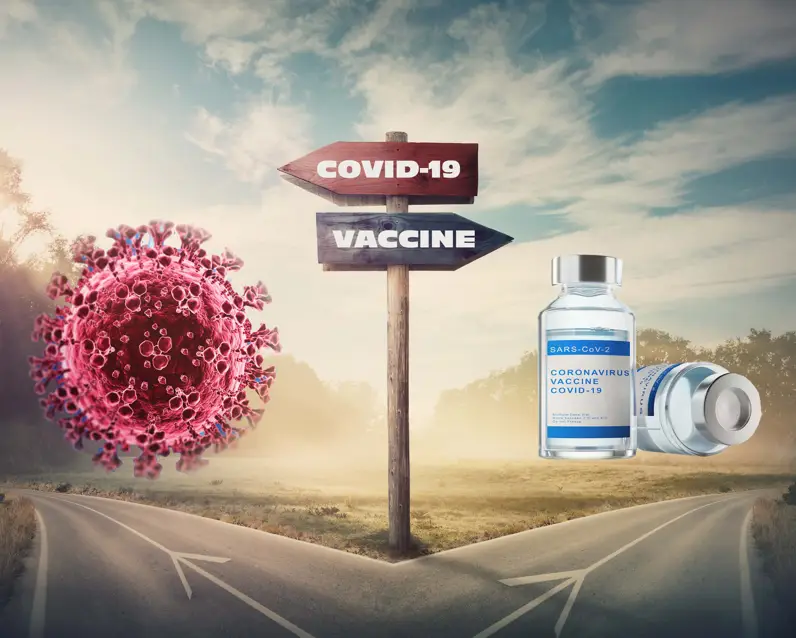Firefighter and EMS Vaccination Education: What You Need to Know

Read up on IAFC and CDC data, facts and resources of the vaccine and know it’s impact on the Fire and EMS community.
Early this past January, the IAFC announced a COVID-19 Firefighter Informational Stand Down, in attempt to combat rising positive cases among both fire and EMS services. According to the IFAC “Safety Stand Downs occur when … a risk to firefighters [is] so alarming that it requires focused, national attention and a call to action by firefighters across the country.”
Over the last two years this risk has been the number of deaths of firefighters due to COVID-19, which has risen to three times more than the typical leading cause of most firefighter deaths- cardiac events.
Due to the pandemic, the fire service has lost 240 and counting firefighters, which at one moment in time was one every 48 hours.
This threat to the Fire and EMS force has led IAFC leadership to critically enforce that firefighters should protect themselves with the COVID-19 vaccination to maintain their readiness and ability to respond.
Why is the vaccine important for Fire and EMS?
Firefighters and EMS are at high risk for contacting COVID-19 on the job. As they are patient facing, they are on the front lines and have a much higher chance for spreading and contracting the virus on-the-daily. No other measure has been proven to be as effective as vaccines for reducing this chance or contracting or reducing the effects of the virus.
What are the concerns on the overall safety, efficacy or impact of the vaccine?
The graphic below presents data on side effects that may occur due to the vaccine, which typically occur during the first 72 hours post vaccination. The vaccines leave the body within 72 hours, which means there is no long term buildup of the vaccine in the body.
How does this vaccination compare to other vaccinations you have encountered in your lifetime?
Vaccines can help eliminate or reduce the chance for contracting certain diseases. For example, the modern day high rate of Polio vaccination is the reason Polio is largely eradicated in the US.
What is the benefit of getting the vaccine?
Vaccines are developed to reduce the risk of infection and to lessen symptoms among the infected. Without vaccination, even those who are healthy can still have severe or negative side effects due to COVID-19. In the graphs below, the blue dotted line shows how overall cases, hospitalization and death rates were significantly lower in vaccinated than in unvaccinated individuals from April-July of 2021.
Can I still get COVID-19 with the vaccine?
Yes, it is possible. However vaccinations can decrease symptoms in the infected as the immune system has previously learned from the vaccine how to fight the virus off. This can lessen the effects of disease, and reduce chances of ending up in the hospital or with long term side effects from the virus.
If I already had COVID-19, do I still need a vaccine?
One may have immunity if they were previously infected with COVID-19, but how long this immunity lasts has shown to be inconsistent in studies this far, and may lessen over time. Additionally, vaccines can offer longer protection against reinfection than prior COVID infection, according to a CDC study.
How can I learn more and stay informed?
Download the instructive powerpoint presentation from the IAFC with even more information that can answer questions you may have regarding the COVID-19 vaccination. Leaders in Fire and EMS can use these resources to promote the safety, health, and survival of their staff through the continuing pandemic.